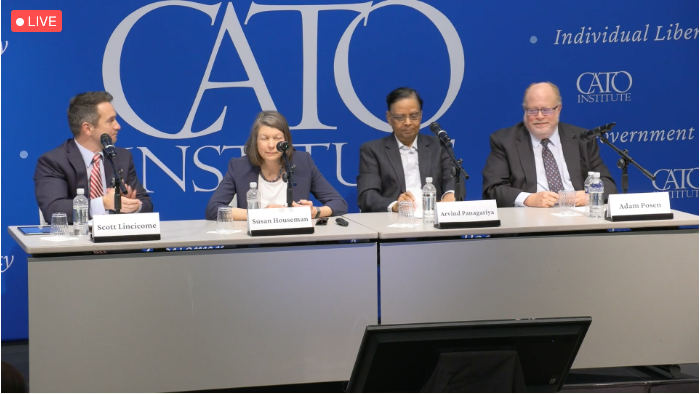Hard to believe but @AdamPosen in an event at #CatoEcon is saying that folks that care about manufacturing jobs have a white macho fetiche... really! Putting aside how egregious is to hear this from a notorious white guy, a short thread with some facts 👇 

@WSpriggs and his team ECONOMETRICALLY showed that the decimation of US manufacturing caused by the China trade shock increased racial inequality considering the change in the share of Black employment and Black hire rate in the most affected areas (2/).
groundworkcollaborative.org/wp-content/upl…
groundworkcollaborative.org/wp-content/upl…
Last year, while at @Public_Citizen, we did some calculations and found that Black and Latino workers were disproportionately represented in nine out of the 10 manufacturing industries that were hit hardest by import competition. (3/).
citizen.org/wp-content/upl…
citizen.org/wp-content/upl…

Millions of workers in these sectors lost their jobs. Plus, in these industries, where again a disproportionate number of Latinos and African Americans worked, wages remained basically stagnant during the last 3 decades. Sectors less exposed to trade had slight wage gains (4/). 

And if you need more than numbers, this piece has some strong stories about how manufacturing has been a path to a decent living for millions of Black, Latino and Asian Americans, both men and women, in the United States (5/).
newyorker.com/news/dispatch/…
newyorker.com/news/dispatch/…
I have heard a lot of arguments to attack the intention to craft a renewed trade policy that contributes to widely distributing opportunities of economic prosperity in the US and abroad but associating it to a white macho fetiche is just desperate (6/6).
Today at the industrial policy event the @rooseveltinst event organized for a bunch of “white macho lovers” (according to Posen’s thinking) to discuss how to generate good manufacturing jobs to be able to transition to a green economy. 

• • •
Missing some Tweet in this thread? You can try to
force a refresh




